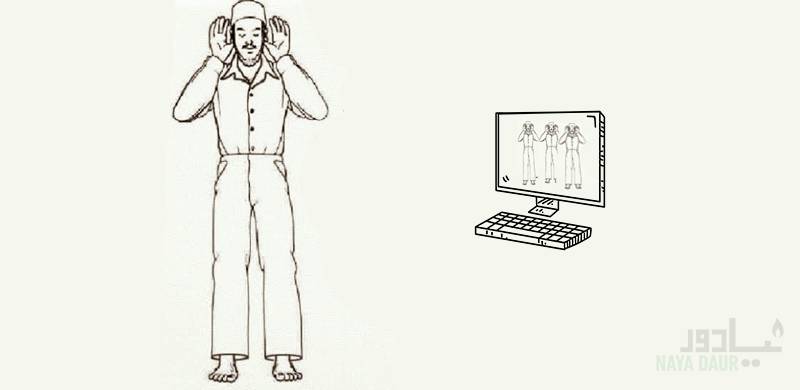
The COVID-19 has forced the world and its citizens into hibernation. With the World Health Organization requesting social distancing to control the spread of an asymptomatic virus, many nations including Muslim countries like Pakistan have adopted strict lockdowns.
During the lockdowns, places of worship have also been closed down to avoid crowding. As a result, Muslims are unable to offer congregational prayers. Ramzan is to begin in 4 days, and the question of whether to offer Taraweeh prayers in mosques or not is being hotly debated in Pakistan.
The opinions are divided. Keeping this in mind, Dr. Arif Alvi, President of Pakistan, after consultation with leading Ulema, on Monday informed the public of his decision to allow countrywide Taraweeh congregations during Ramzan. The president presented a 20-point plan, according to which mosques would regulate the prayers to strictly follow the principles of social distancing and ensure other adequate measures to control the spread of COVID-19.
The decision is political. But what if the precautions fall short? What if they’re not properly followed? Who will take responsibility for the lives of those infected and lost due to these congregational prayers? Pakistan, being an economically weak country with limited medical resources and testing kits, won’t be able to bear the burden of such a tragedy.
Practicing religious rites is of crucial importance but human lives are precious too. With over 170,000 deaths worldwide due to COVID-19, it is rather prudent that we explore all possible alternatives when addressing the question of allowing prayers.
In this light, a solution can be the application of online technology. Yes, you read that right. Online technology can be used to temporarily digitize prayers until COVID-19 subsides. The education sector has digitized itself. Online classes are being held using applications such as Zoom and Bigbluebutton to avoid crowding in classes and simultaneously imparting quality education. It is an option through which Imams can perhaps deliver online sermons, and lead prayers and the Muslim community can connect through an online congregation.
As Ramzan is all set to begin, whatever decisions the government takes will have their consequences and it is highly recommended that relevant debate takes place to deal with the problem at hand. Otherwise, many lives will be exposed to grave danger.
During the lockdowns, places of worship have also been closed down to avoid crowding. As a result, Muslims are unable to offer congregational prayers. Ramzan is to begin in 4 days, and the question of whether to offer Taraweeh prayers in mosques or not is being hotly debated in Pakistan.
The opinions are divided. Keeping this in mind, Dr. Arif Alvi, President of Pakistan, after consultation with leading Ulema, on Monday informed the public of his decision to allow countrywide Taraweeh congregations during Ramzan. The president presented a 20-point plan, according to which mosques would regulate the prayers to strictly follow the principles of social distancing and ensure other adequate measures to control the spread of COVID-19.
The decision is political. But what if the precautions fall short? What if they’re not properly followed? Who will take responsibility for the lives of those infected and lost due to these congregational prayers? Pakistan, being an economically weak country with limited medical resources and testing kits, won’t be able to bear the burden of such a tragedy.
Practicing religious rites is of crucial importance but human lives are precious too. With over 170,000 deaths worldwide due to COVID-19, it is rather prudent that we explore all possible alternatives when addressing the question of allowing prayers.
In this light, a solution can be the application of online technology. Yes, you read that right. Online technology can be used to temporarily digitize prayers until COVID-19 subsides. The education sector has digitized itself. Online classes are being held using applications such as Zoom and Bigbluebutton to avoid crowding in classes and simultaneously imparting quality education. It is an option through which Imams can perhaps deliver online sermons, and lead prayers and the Muslim community can connect through an online congregation.
As Ramzan is all set to begin, whatever decisions the government takes will have their consequences and it is highly recommended that relevant debate takes place to deal with the problem at hand. Otherwise, many lives will be exposed to grave danger.
